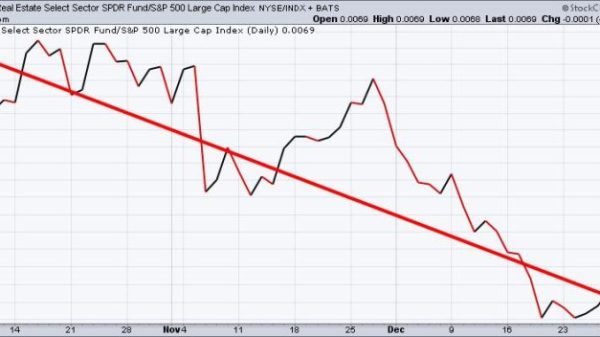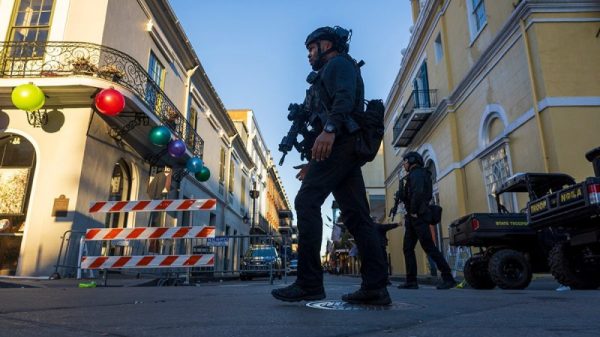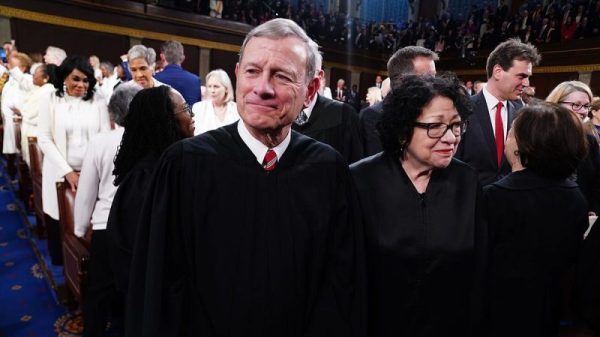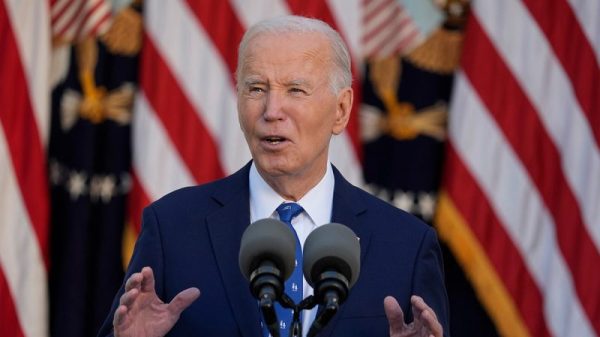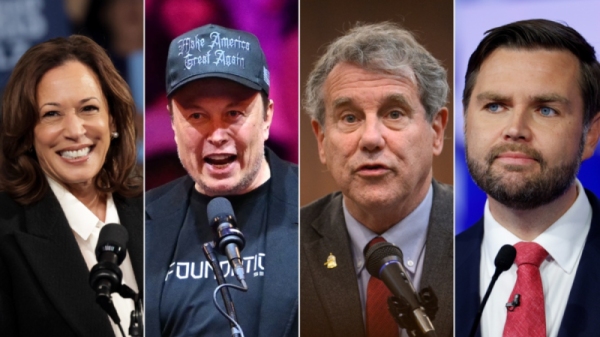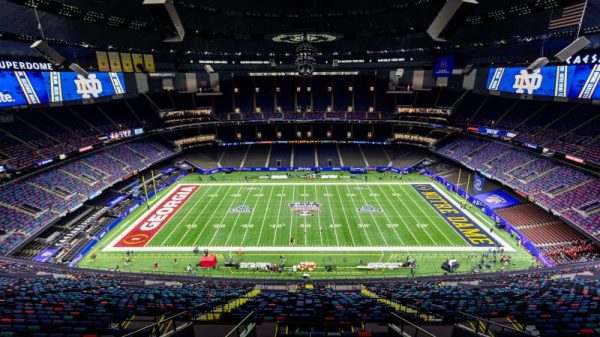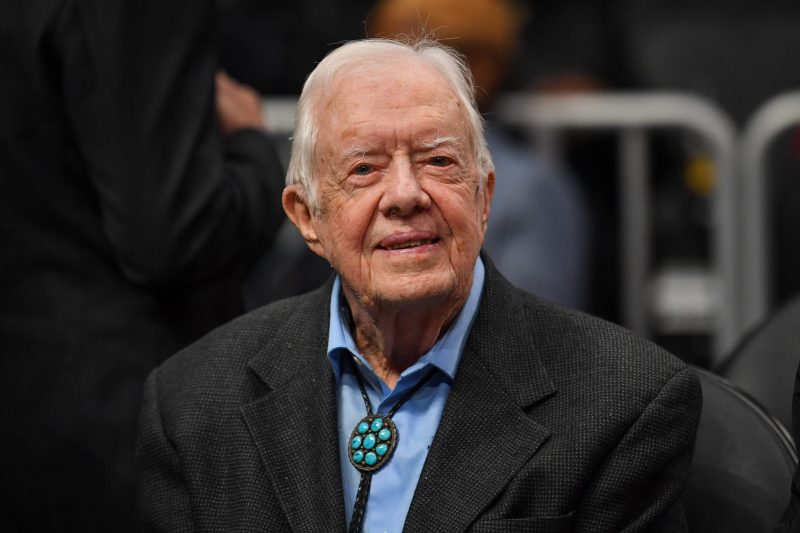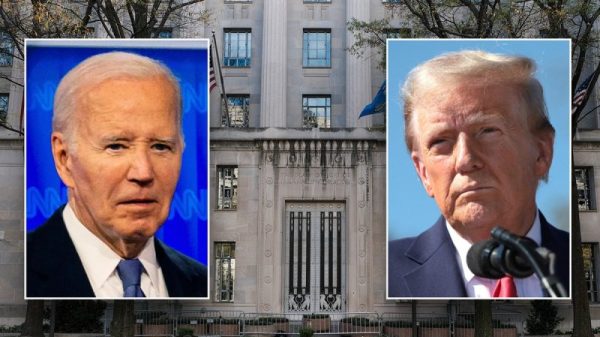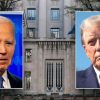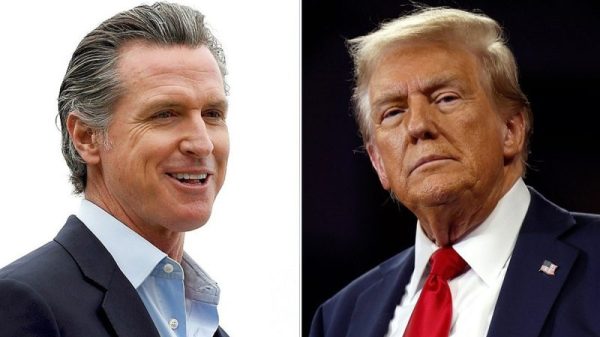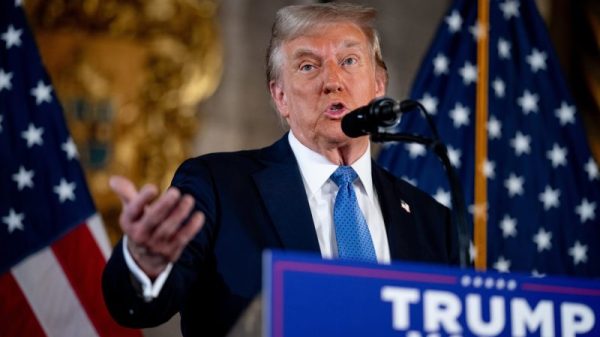While history has softened the harsh view of Jimmy Carter’s presidency, there is one part of his legacy that looks worse as the years pass.
Carter, who died Sunday in Plains, Georgia, at the age of 100, called to boycott the 1980 Olympics because of the Soviet Union’s invasion of Afghanistan, and the pressure he exerted on the U.S. Olympic Committee to comply, was wrong and naïve. It accomplished nothing other than to further entrench the antagonism between the United States and the Soviet Union, and inserted politics where it didn’t belong.
Worse, it punished hundreds of athletes, robbing them of the moment and opportunity for which they had trained and sacrificed. Not just American athletes, either. Other countries joined the United States in boycotting the Summer Games in Moscow, including Canada and Japan, and the Soviet Union and much of the Eastern bloc retaliated four years later in Los Angeles.
Carter, raised the possibility of a boycott in January 1980, a month after the Soviet Union invaded Afghanistan, hoping the embarrassment of the world staying home from the Summer Games would convince the communist powerhouse to leave Afghanistan. After the Soviets ignored a February deadline, Carter officially announced the boycott March 21, 1980.
But it is the USOC, not the White House, that sends teams to the Olympics.
In an April speech to USOC leaders, Vice President Walter Mondale painted the boycott as a moral imperative, saying ‘no less than the future security of the civilized world’ was at stake in Afghanistan. He likened the Soviet invasion to Hitler’s Nazi Germany, and said the United States could not make the same mistake it had in 1936, when Jesse Owens led an American team to the Berlin Games.
‘As Joseph Goebbels boasted on the eve of the Olympics, the Reich expected the Games ‘to turn the trick and create a friendly world attitude toward Nazi political, economic, and racial aims.’ It worked,’ Mondale told the USOC. ‘… Neither Jesse’s achievements in Berlin nor any words spoken at the Games prevented the Reich from exploiting the Olympics toward their own brutal ends.’
A few hours after Mondale’s speech, the USOC agreed to Carter’s demand and said it would not send a team to Moscow.
While athletes were hailed as patriots and praised for their sacrifice, that was little consolation for the harsh reality of Olympic sports.
With the Games held once every four years, most athletes get only one shot when they’re in their prime. Four years earlier and they’re probably too young. Four years later and they’re probably too old.
The boycott meant hundreds of athletes missed out on the opportunity to be recognized by the entire world as the best in the sports to which they’d devoted their entire lives. Given this was still in the days before professionals could compete in the Olympics, those athletes who would have won medals lost out on post-Games economic opportunities, including lucrative speaking engagements for which they’d still be in demand long after their days as an athlete had ended.
Take Bill Rodgers, arguably one of the greatest distance runners ever.
Rodgers was 40th in the marathon at the 1976 Olympics in Montreal. But beginning with the New York Marathon later that year, he won 15 of his next 19 races at the 26.2-mile distance, including Boston in 1978, 1979 and 1980.
He set an American record at Boston in 1979, and Track & Field News ranked him No. 1 in the marathon for a third time that year. Had the United States gone to Moscow, he would have been a favorite to join Frank Shorter (1972), John Hayes (1908) and Thomas Hicks (1904) as the only U.S. men to win the Olympic marathon, a feat that would have made him a commercial superstar.
But the United States didn’t go to Moscow. And by the time the Los Angeles Games arrived, Rodgers’ career was in decline. He finished eighth at the 1984 Olympic trials and didn’t even make the U.S. team for L.A.
‘We’re simply a tool, an implement,’ Rodgers told the Washington Post at the time. ‘No one cares at all, until we can be used for their purposes. Then they can use it.’
At least Rodgers could still call himself an Olympian, having competed in Montreal. But there were other athletes for whom Moscow was their only chance. They remain in a weird sort of athletic purgatory, Olympians without an Olympics.
‘I feel like a doctor who knows the specialty, but I don’t have that M.D.,’ wrestler Lee Kemp, who would have been the heavy favorite for gold at 74 kilograms in Moscow after winning the world title in 1978 and 1979, told the New Orleans Times-Picayune in 2010.
Kemp retired after finishing second at the 1984 Olympic trials.
Had the boycott accomplished what Carter hoped, maybe athletes could have taken some comfort in knowing their sacrifice had brought about change. But many of the United States’ closest allies – Britain and France among them – refused to join the boycott. The politics Carter hoped to keep out of the Olympics are now endemic to the Games.
And not until February 1989, almost a decade later, would the Soviet Union leave Afghanistan.
‘There was not one positive,’ Kemp told the Times-Picayune. ‘Not one.’
Forty-four years later, it’s even more apparent Carter made the wrong decision.
Follow Nancy Armour on Twitter @nrarmour






